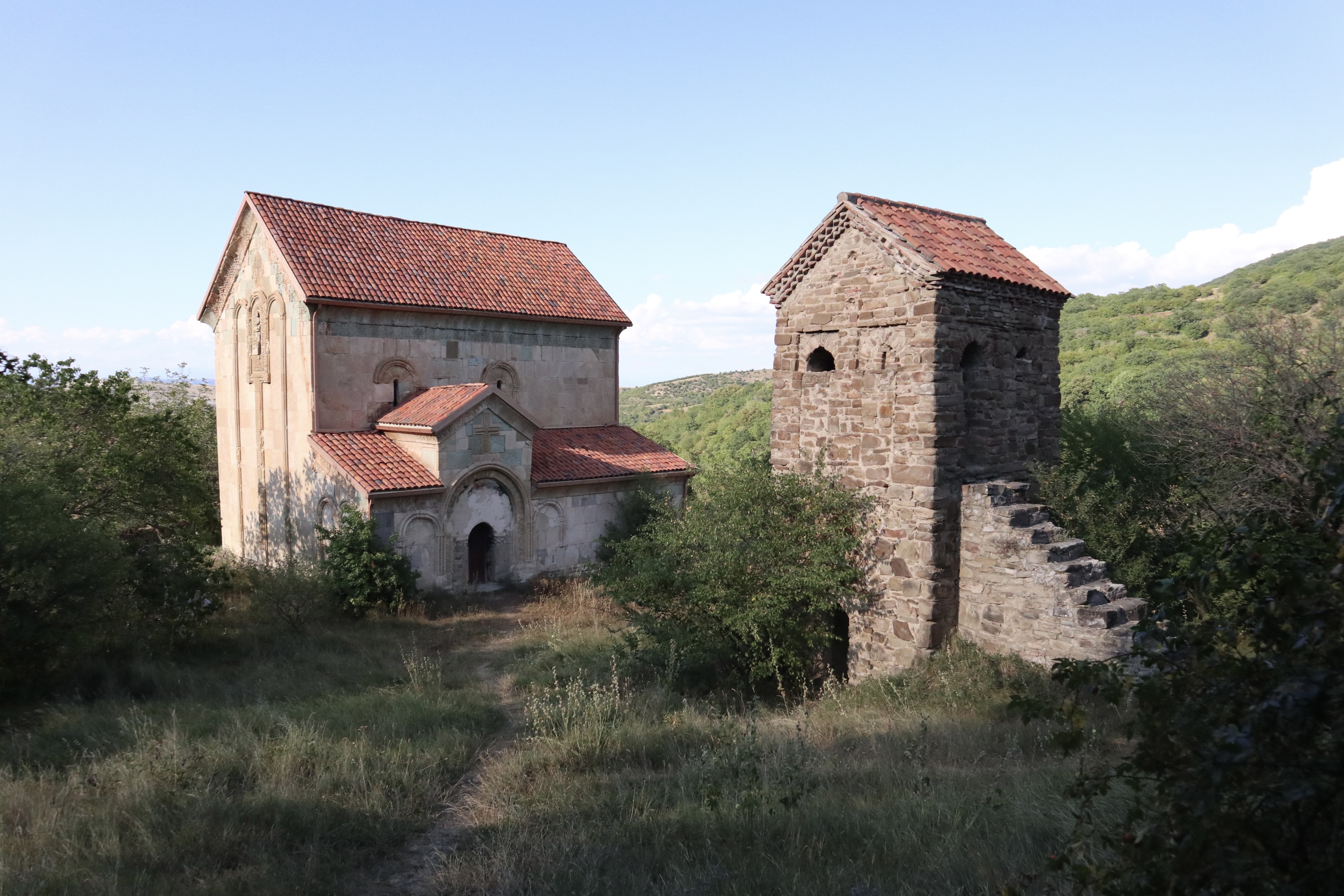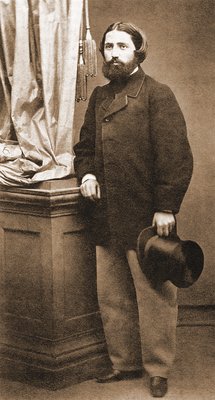|
Maghalashvili
The Maghalashvili (Magalashvili; ka, მაღალაშვილი) or Maghaladze (Magaladze, მაღალაძე) is a Georgian noble family; according to Cyril Toumanoff, an offshoot of the medieval house of Mkhargrdzeli. Toumanoff, Cyril (1967). ''Studies in Christian Caucasian History'', p. 270. Georgetown University Press. The surname Maghalashvili is a combination of Maghala (which means tall or "Great" in Greek language) and shvili (meaning son in Georgian language). Bibiluridze According to Georgian genealogic tradition of Prince Ioann (1768–1830), the Maghalashvili came from Imereti (western Georgia) to Kartli (central Georgia) in 1415, in the reign of Alexander I of Georgia, who granted them an estate at the village of Tsinarekhi in Shida Kartli. An 18th century Georgian Orthodox Christian monastery, named the Maghalashvili or Maghalaanti Castle complex, was also built in their name, located on a hill outside of Tsinarekhi. By the end of the 17 ... [...More Info...] [...Related Items...] OR: [Wikipedia] [Google] [Baidu] |
Maghalashvili Monastery
The Maghalashvili (Magalashvili; ka, მაღალაშვილი) or Maghaladze (Magaladze, მაღალაძე) is a Georgian noble family; according to Cyril Toumanoff, an offshoot of the medieval house of Mkhargrdzeli.Toumanoff, Cyril (1967). ''Studies in Christian Caucasian History'', p. 270. Georgetown University Press. The surname Maghalashvili is a combination of Maghala (which means tall or "Great" in Greek language) and shvili (meaning son in Georgian language). Bibiluridze According to Georgian genealogic tradition of Prince Ioann (1768–1830), the Maghalashvili came from Imereti (western Georgia) to Kartli (central Georgia) in 1415, in the reign of Alexander I of Georgia, who granted them an estate at the village of Tsinarekhi in Shida Kartli. An 18th century Georgian Orthodox Christian monastery, named the Maghalashvili or Maghalaanti Castle complex, was also built in their name, located on a hill outside of Tsinarekhi. By the end of the 17th cen ... [...More Info...] [...Related Items...] OR: [Wikipedia] [Google] [Baidu] |
Tsinarekhi
Tsinarekhi ( Georgian: წინარეხი) is a small village located in eastern Georgia in the Kaspi Municipality of the Shida Kartli region in Georgia (country), Tsinarekhi is located 10 km south of the town of Kaspi. The surrounding villages and communities are Gomisjvari, Telatgori, Idleti, Lavriskhevi. Tsinarekhi is located on the banks of the Kavturi River (the right tributary of Mtkvari). It is 720 meters above sea level and 32 km from Tbilisi. Community The village and its community is mainly made up of farmers, these include shepherds, dairy farmers, fruit farmers and other crop farmers. The population of the village lives in cabins and traditional Georgian houses, some of the properties in the village are summer vacation homes for families that live in larger towns and cities. Most families in the village bare the surname "Keshelashvili" as it is the place of origin, another common last name is Maghalashvili. Around the village are several historical w ... [...More Info...] [...Related Items...] OR: [Wikipedia] [Google] [Baidu] |
Nikita Magaloff
Nikita Magaloff (russian: Никита Магалов; 26 December 1992) was a Georgia (country), Georgian-Russian pianist. He was born in Saint Petersburg to a Georgian noble family named Maghalashvili. Magaloff and his family left Russia in 1918 for Finland. His musical interest first stimulated by family friend Serge Prokofiev, he studied with Alexander Siloti before going to Paris, where he studied with Isidor Philipp, chair of the piano department at the Paris Conservatory. He numbered Maurice Ravel, Ravel among his friends there, who, when he graduated in 1929, said 'In Magaloff a great, a truly extraordinary musician is born.' He was best known for his espousal of the music of Frédéric Chopin, Chopin and was accustomed to perform the complete piano works in series of six recitals. He was the first to record Chopin's complete works. While these recordings have been criticised for their failure to plumb the depths of Chopin's works, they were innovative for their textual f ... [...More Info...] [...Related Items...] OR: [Wikipedia] [Google] [Baidu] |
Simon Magalashvili
Simon Magalashvili ( he, סימון מיגרשווילי; born January 4, 1968) is an Israeli Olympic judoka. Judo career In 1991, he came in 7th in the 1991 World Judo Championships in the U95kg category in Barcelona. Competing in judo for Israel at the 1992 Olympics in Barcelona Barcelona ( , , ) is a city on the coast of northeastern Spain. It is the capital and largest city of the autonomous community of Catalonia, as well as the second most populous municipality of Spain. With a population of 1.6 million within ci ..., Spain, in the Men's Half-Heavyweight category, he came in tied for 21st out of 34 competitors. References External links * * * 1968 births Living people Israeli male judoka Olympic judoka for Israel Judoka at the 1992 Summer Olympics 20th-century Israeli people {{Israel-judo-bio-stub ... [...More Info...] [...Related Items...] OR: [Wikipedia] [Google] [Baidu] |
Georgian Orthodox Church
The Apostolic Autocephalous Orthodox Church of Georgia ( ka, საქართველოს სამოციქულო ავტოკეფალური მართლმადიდებელი ეკლესია, tr), commonly known as the Georgian Orthodox Church or the Orthodox Church of Georgia, is an autocephalous Eastern Orthodox church in full communion with the other churches of Eastern Orthodoxy. It is Georgia's dominant religious institution, and a majority of Georgian people are members. The Orthodox Church of Georgia is one of the oldest churches in the world. It asserts apostolic foundation, and that its historical roots can be traced to the early and late Christianization of Iberia and Colchis by Andrew the Apostle in the 1st century AD and by Saint Nino in the 4th century AD, respectively. As in similar autocephalous Eastern Orthodox Christian churches, the church's highest governing body is the holy synod of bishops. The church is headed by ... [...More Info...] [...Related Items...] OR: [Wikipedia] [Google] [Baidu] |
Georgia (country)
Georgia (, ; ) is a transcontinental country at the intersection of Eastern Europe and Western Asia. It is part of the Caucasus region, bounded by the Black Sea to the west, by Russia to the north and northeast, by Turkey to the southwest, by Armenia to the south, and by Azerbaijan to the southeast. The country covers an area of , and has a population of 3.7 million people. Tbilisi is its capital as well as its largest city, home to roughly a third of the Georgian population. During the classical era, several independent kingdoms became established in what is now Georgia, such as Colchis and Iberia. In the early 4th century, ethnic Georgians officially adopted Christianity, which contributed to the spiritual and political unification of the early Georgian states. In the Middle Ages, the unified Kingdom of Georgia emerged and reached its Golden Age during the reign of King David IV and Queen Tamar in the 12th and early 13th centuries. Thereafter, the ... [...More Info...] [...Related Items...] OR: [Wikipedia] [Google] [Baidu] |
Knyaz
, or (Old Church Slavonic: Кнѧзь) is a historical Slavic title, used both as a royal and noble title in different times of history and different ancient Slavic lands. It is usually translated into English as prince or duke, depending on specific historical context and the potentially known Latin equivalents of the title for each bearer of the name. In Latin sources the title is usually translated as , but the word was originally derived from the common Germanic (king). The female form transliterated from Bulgarian and Russian is (), in Slovene and Serbo-Croatian (Serbian Cyrillic: ), ''kniahinia'' (княгіня) in Belarusian and ''kniazioŭna'' (князёўна) is the daughter of the prince, (княгиня) in Ukrainian. In Russian, the daughter of a knyaz is (). In Russian, the son of a knyaz is ( in its old form). The title is pronounced and written similarly in different European languages. In Serbo-Croatian and some West Slavic languages, the w ... [...More Info...] [...Related Items...] OR: [Wikipedia] [Google] [Baidu] |
Russian Empire
The Russian Empire was an empire and the final period of the List of Russian monarchs, Russian monarchy from 1721 to 1917, ruling across large parts of Eurasia. It succeeded the Tsardom of Russia following the Treaty of Nystad, which ended the Great Northern War. The rise of the Russian Empire coincided with the decline of neighbouring rival powers: the Swedish Empire, the Polish–Lithuanian Commonwealth, Qajar Iran, the Ottoman Empire, and Qing dynasty, Qing China. It also held colonies in North America between 1799 and 1867. Covering an area of approximately , it remains the list of largest empires, third-largest empire in history, surpassed only by the British Empire and the Mongol Empire; it ruled over a population of 125.6 million people per the Russian Empire Census, 1897 Russian census, which was the only census carried out during the entire imperial period. Owing to its geographic extent across three continents at its peak, it featured great ethnic, linguistic, re ... [...More Info...] [...Related Items...] OR: [Wikipedia] [Google] [Baidu] |
Tavadi
''Tavadi'' ( ka, თავადი, "prince", lit. "head/chief" an from ka, თავი ''tavi'', "head", with the prefix of agent ''-di'') was a feudal title in Georgia first applied in the Late Middle Ages usually translated in English as Prince (most commonly) and Duke (less commonly). The title was designated for dynastic princes who were heads of families, akin to mtavari who had a higher standing. The tavadis were subordinates and vassals of the kings, queens, mtavaris and batonishvilis but had administrative, judicial and tax immunities in their dominions and had their own military forces. The lower noble feudal class of Georgia had the title of aznauri who were subordinates of tavadis. See also *List of Georgian princely families *Court officials of the Kingdom of Georgia References *Jamburia G. Georgian Soviet Encyclopedia The ''Georgian Soviet Encyclopedia'' ( ka, ქართული საბჭოთა ენციკლოპედია, ქსე) is th ... [...More Info...] [...Related Items...] OR: [Wikipedia] [Google] [Baidu] |
Prince
A prince is a Monarch, male ruler (ranked below a king, grand prince, and grand duke) or a male member of a monarch's or former monarch's family. ''Prince'' is also a title of nobility (often highest), often hereditary title, hereditary, in some European State (polity), states. The female equivalent is a princess. The English language, English word derives, via the French language, French word ''prince'', from the Latin noun , from (first) and (head), meaning "the first, foremost, the chief, most distinguished, noble monarch, ruler, prince". Historical background The Latin word (older Latin *prīsmo-kaps, literally "the one who takes the first [place/position]"), became the usual title of the informal leader of the Roman senate some centuries before the transition to Roman Empire, empire, the ''princeps senatus''. Emperor Augustus established the formal position of monarch on the basis of principate, not Dominate, dominion. He also tasked his grandsons as summer rulers o ... [...More Info...] [...Related Items...] OR: [Wikipedia] [Google] [Baidu] |
Erekle I Of Kakheti
Heraclius I ( ka, ერეკლე I, Erekle I; ) or Nazar Alī Khān (; ) (1642–1709), of the Bagrationi dynasty, was a Georgian monarch who ruled the kingdoms of Kakheti (1675–1676, 1703–1709) and Kartli (1688–1703) under the protection of the Safavid dynasty of Iran. Early life He was son of Prince David of Kakheti (1612-1648), son of King Teimuraz I, by his wife Helene née Princess Diasamidze (died 1695). Taken to Russia when the pro-Persian king Rostom of Kartli defeated Teimuraz in 1648, he was raised and educated at the Romanov court at Moscow where he was known as '' Tsarevich'' Nicholas Davidovich (russian: Царевич Николай Давыдович). In 1662, he returned to take over the then-vacant crown of Kakheti at the invitation of local nobility, but was defeated by the rival prince Archil who enjoyed Iranian support. Nicholas had to flee back to Russia where he featured prominently and was best man of Tsar Alexis Mikhailovich in his wed ... [...More Info...] [...Related Items...] OR: [Wikipedia] [Google] [Baidu] |






